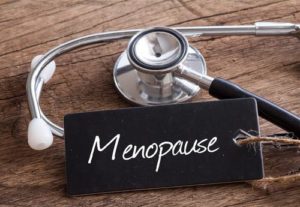Mood swings. Memory lapses. Sleep disruptions. And let’s not forget the ever popular hot flashes!
If you’re a woman over 40, it’s inevitable that sooner or later, you’re going to experience at least one, if not more of these symptoms. While they may temporarily cause upheaval in your life, it’s all part of the natural biological process that women go through.
Menopause
Mood swings. Memory lapses. Sleep disruptions. And let’s not forget the ever popular hot flashes!
If you’re a woman over 40, it’s inevitable that sooner or later, you’re going to experience at least one, if not more of these symptoms. While they may temporarily cause upheaval in your life, it’s all part of the natural biological process that women go through.
DEFINITION OF MENOPAUSE
Menopause is the permanent end of menstruation and fertility. It officially occurs 12 months after a woman’s last menstrual period. But symptoms typically start to occur several years before, as a woman’s hormone levels decline, and her ovaries produce fewer eggs.
The interval preceding menopause is called “peri-menopause.” Some women exhibit signs in their 30s, but it’s more typical for a woman in her 40s. You may notice that your periods become irregular – longer, shorter, heavier or lighter, and sometimes more or less than 28 days apart. You may also experience menopause-like symptoms, such as hot flashes, sleep problems and vaginal dryness.
EMOTIONAL SYMPTOMS OF MENOPAUSE
With the onset of menopause, not only does one experience physical symptoms, but also numerous and often debilitating emotional symptoms. In fact, some women describe menopause as a prolonged case of PMS. That’s because as with PMS, menopausal women experience large hormonal fluctuations. When estrogen levels dip, you may endure:
Loss of libido
Mood swings
Fatigue
Sleep disorders
Difficulty concentrating
Memory lapses
Depression
Anxiety
Panic disorder
MENOPAUSE TREATMENT OPTIONS
Some women can control peri-menopausal symptoms with lifestyle modifications, such as maintaining a healthy, balanced diet, engaging in regular exercise, drinking plenty of water and lowering thermostats. Other women may take low-dose oral contraceptives or natural progesterone therapy to make their periods more regular and to reduce the disruptive symptoms.
HORMONE REPLACEMENT THERAPY
Several major studies have recently questioned the health benefits of hormone replacement therapy – citing the risks of developing breast cancer, heart attacks, strokes and blood clots.
Current guidelines support the use of hormone therapy for the treatment of hot flashes. But to reduce the risks of estrogen therapy, your doctor may recommend:
Using a low-dose vaginal cream instead of a pill
Having frequent and regular pelvic exams and Pap smears
Having frequent and regular physical exams, including breast exams and mammograms
Baseline hormonal analysis with blood or saliva testing
BIO-IDENTICAL HORMONES REPLACEMENT THERAPY (BHRT) FOR MENOPAUSE
Another treatment option to help alleviate peri-menopausal symptoms is the use of bio-identical hormones. Bio-identical hormones are made from a plant chemical extracted from yams and soy. Once extracted, the hormones are not synthetically altered and are an exact chemical match to those made naturally in our bodies. As a result, bio-identical hormones act in the body just like the hormones we produce… And they typically produce fewer side effects compared to synthetic derivatives. Bio-identical hormones are available in creams, gels, and patches as well as in tablets, capsules, or lozenges. Since no two patients are alike, a pharmacy specialized in compounding hormones is used to formulate the bio-identical hormones. Hormones can be combined and dosage strength varied for each patient based on their symptoms and laboratory analysis.
If you are experiencing peri-menopausal symptoms, contact Dr. Iris Ayala at 352.242.2560 for an appointment to conduct a thorough evaluation and discuss treatment options.
-source miabellahealth.com

